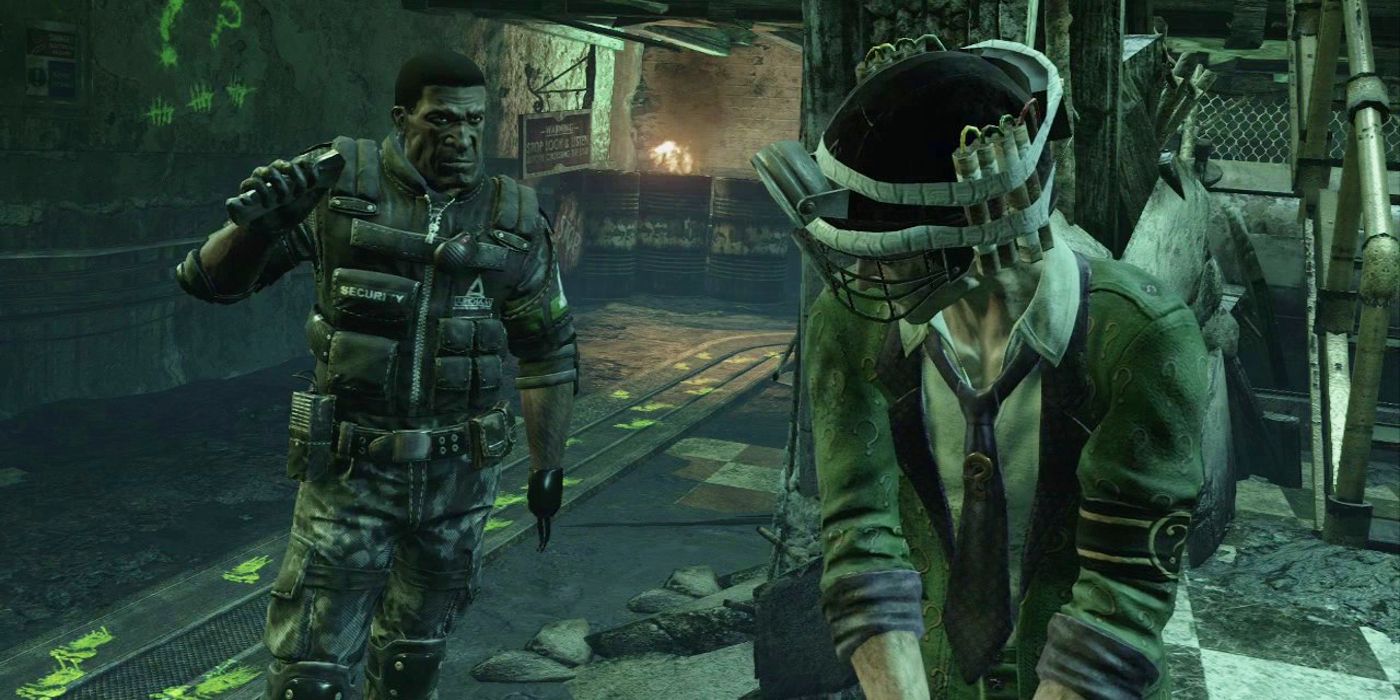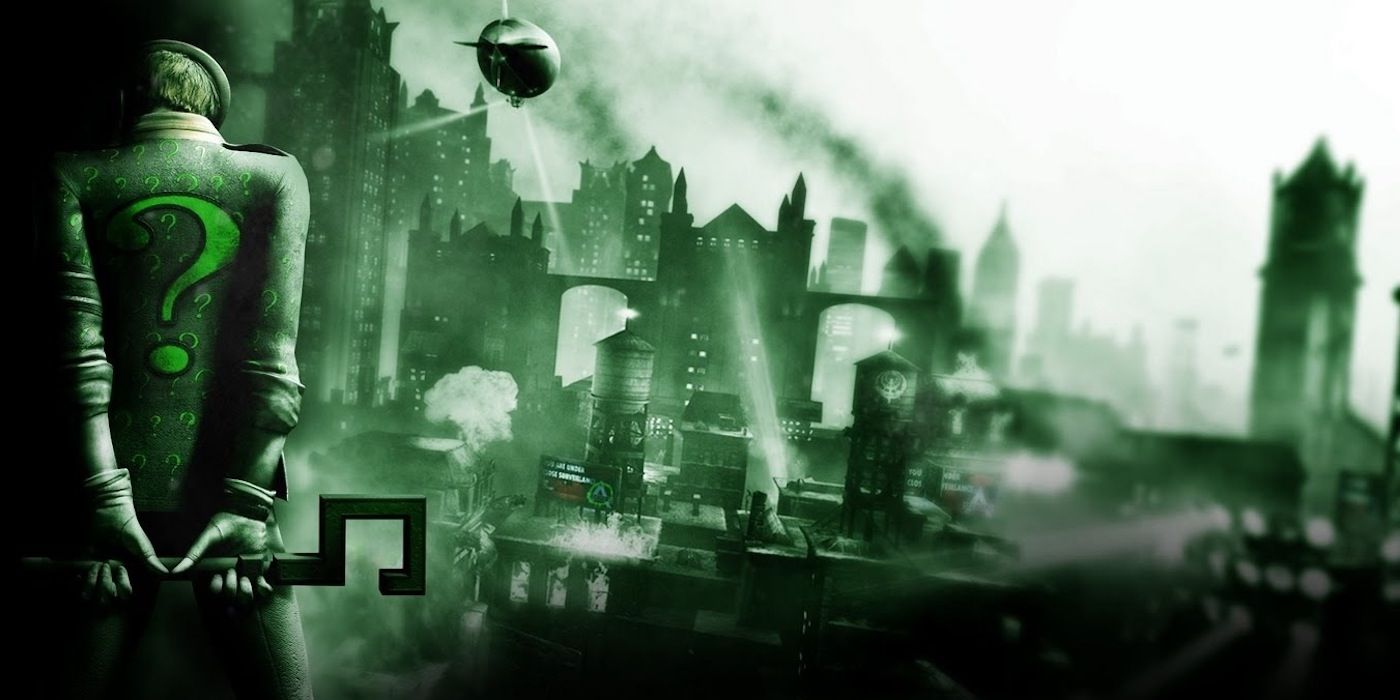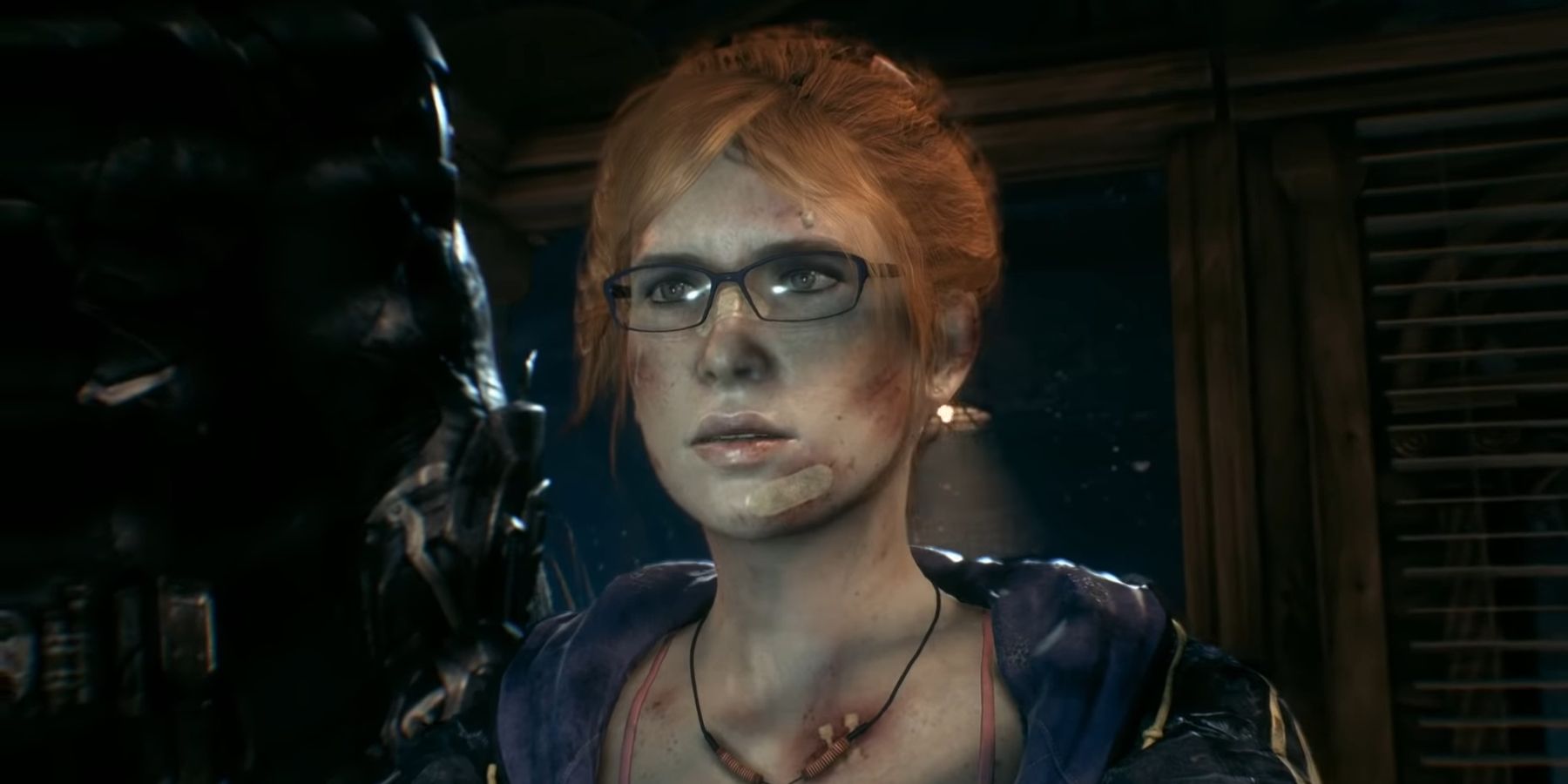The Batman: Arkham games portrayed many facets of Batman's character but failed to represent his detective skills accurately. Unlike many Batman shows, comic books, and movies, Batman: Arkham's Dark Knight accomplishes much of his detective work in unimaginative ways. While the games frequently depict an experienced Batman who has surpassed the investigative learning curve, the player input contributing to solving crimes is severely lacking. As a result, the Batman protagonist depicted in the beloved series appears to solve most of his mysteries and crimes through plot convenience instead of through actual skill.
The Batman: Arkham games include Arkham Asylum, Arkham City, Arkham Origins, and Arkham Knight. Each title featured numerous DLCs and unique level, combat, and character designs, alongside a thrilling story and central conflict throughout Gotham. High-profile villains like the Joker maintained regular appearances in the series, but Batman: Arkham contained dozens of characters from Gotham's Rogues Gallery. While each villain has a unique gimmick that influences combat mechanics, motives, and the investigation, the Batman: Arkham games don't accurately depict Batman's detective process for any enemy.
The Batman: Arkham games featured a mechanic called Detective Vision that allowed players to examine an area and gather evidence, find clues, and guide the Dark Knight to the next step in his current quest. While this mechanic sounds intuitive on paper, it's little more than a cutscene sequence where players can walk around. Reconstructing the crime scene and discovering suspects' whereabouts has so much potential, but Batman accomplishes most of the heavy lifting with his technology rather than his intelligence. While there are many reasons to praise the Batman: Arkham games, they falls short of the "detective" identity of the World's Greatest Detective in more ways than one.
Batman: Arkham Interrogations Weren't Creative
Interrogations are essential for uncovering the truth behind crimes, but Batman: Arkham's villain masterminds are unusually compliant after being caught. However, as many instances have shown, physical torture, assault, and battery aren't the most effective (or reliable) ways of extracting information from subjects. Despite being a billionaire with many resources and an impressive crime-solving rate, Batman constantly falls back to the same interrogation strategies. Players mash buttons or experience one line of dialogue before receiving their answers but can explore no further methods of interacting with Gotham's criminal underground. Other Gotham-centric projects like Gotham Knights could improve Batman: Arkham's investigation styles by featuring bribes, inside agents, or detecting flawed alibis.
Batman: Arkham's Most Wanted missions featured more intensive investigation work, but Batman still routinely struggled to complete other essential detective work. For example, in Batman: Arkham Knight, the Mad Hatter remains in GCPD to be interrogated. However, when Batman lets his guard down, he becomes trapped by the Mad Hatter's spell and falls under his influence. What seemed to be Batman: Arkham Knight's first believable (and legal) interrogation swiftly turned into a cat-and-mouse game across Gotham. While Batman still embodies the pinnacle of non-metahuman superheroes within the DC universe, his lack of detective and investigation skills throughout the series is an insult to the character's "World's Greatest Detective" title.
Batman: Arkham Missions Weren't Mysterious Enough
Batman: Arkham featured many villains, but their crimes rarely created mysteries that required significant brainpower to solve. Instead, players completed most missions by exploring the series' various linear and open-world maps. At most, in-game crimes and puzzles feature several cutscenes without player choice or interaction or a few lines of dialogue as Batman explores or speaks with essential NPCs. Instead, most problems Batman faced involved locating various threats and punching the issue to unconsciousness. Unfortunately, while this gameplay formula provided entertainment and addictive combat, it failed to deliver more nuanced mechanics to Batman's character and skills.
Batman: Arkham Knight included frustrating Riddler puzzles littered throughout the expansive open world, which required players to explore new solutions with existing tools. While these puzzles contributed to developing Batman's skills and psyche, they rarely involved detective work. Instead, Riddler's puzzles involved platforming and mastery over the Dark Knight's impressive arsenal. Professor Pyg's Most Wanted mission is the closest players came to actively participating in bonafide detective work, but the bodies' removal from their places of death limits what Batman can detect. Before confronting Professor Pyg, Batman examines several bodies crucified throughout Gotham City beside radios playing opera music. Each victim features some bodily "flaw" that Pyg sought to fix, only to kill them with his cruel and sadistic style. Unfortunately, most of Batman's work is done with Detective Vision and Alfred's research, once again delegating players to aim and click over highlighted areas. The tasks would have provided much more stimulating investigative work if the victims had been from Gotham, and Batman could investigate their apartments or workplaces to gather more information.
Batman: Arkham Passed Research To Alfred & Oracle
Aside from Batman: Arkham's Batgirl DLC, Barbara Gordon primarily occupied the role of Oracle: the Batfamily's primary communications and intelligence agent. Paralyzed after Joker's attack, Barbara Gordon's Oracle identity occupies a similar role in the comics and proves not all heroes wear capes. Alfred Pennyworth also assists Batman in locating information about different suspects and villains, occasionally contacting the Dark Knight about time-sensitive emergencies throughout Gotham City. However, their investigations take most of the work away from Batman, who then takes credit for their accomplishments and intelligence-gathering. Players can excuse Batman's lack of participation in these investigations with the existence of the Batcomputer and other machines, but the lack of active input from the players is disappointing.
Batman's lack of investigative prowess in the Batman: Arkham series contrives from a core gameplay mechanic: Batman can't fail. Unlike Telltale's Batman games, where choices can dictate the fates of different characters, Batman: Arkham Knight and its predecessors are linear titles. In reality, an investigation can take a significant number of hours, and authorities can still overlook crucial details that cripple the case. However, while Batman battles the Joker, Scarecrow, Killer Croc, Deathstroke, and the Arkham Knight, he must claim victory for continuity's sake. As a result, the risks involved with investigative work are inherently removed, sabotaging a key aspect of Batman's character.
While Batman failed to portray many investigative skills in the Batman: Arkham games, they remain the pinnacle of superhero games in the modern era. Each title featured dozens of Gotham's iconic rogues, combined with smooth combat and intuitive skill trees. Additionally, dozens of other detective games provide players with more intuitive investigative game mechanics. Rocksteady and WB Games are both developing new DC universe games, with upcoming projects including Gotham Knights, Suicide Squad: Kill the Justice League, and Wonder Woman. It's unknown whether any of these titles could revive Detective Vision or implement new investigative mechanics, but failing to explore Batman's more tempered, intellectual side robbed Batman: Arkham of many opportunities.
The Batman: Arkham series is available in its entirety on PC, PlayStation, and Xbox systems, while Gotham Knights is scheduled for the 2022 Holiday Season, and Suicide Squad: Kill the Justice League releases in 2023.




